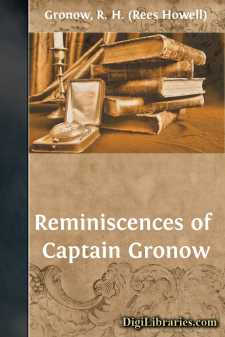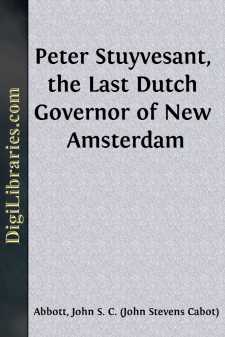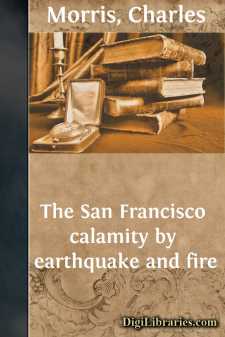History
- Africa 30
- Americas (North Central South West Indies) 50
- Ancient 68
- Asia 58
- Australia & New Zealand 8
- Canada 41
- Caribbean & West Indies 1
- Civilization 20
- Eastern Europe 12
- Europe 310
- Expeditions & Discoveries 60
- General 77
- Historical Geography 1
- Jewish 9
- Latin America 3
- Medieval 8
- Middle East 13
- Military 248
- Revolutionary 8
- Study & Teaching 5
- United States 353
- Western Europe 56
- World 13
History Books
Sort by:
It has been my lot to have lived through the greater part of one of the most eventful centuries of England's history, and I have been thrown amongst most of the remarkable men of my day; whether soldiers, statesman, men of letters, theatrical people, or those whose birth and fortune—rather, perhaps, than their virtues or talents—have caused them to be conspicuous in society at home or abroad....
more...
I EUROPE WITHOUT PEACE Is there anyone who still remembers Europe in the first months of 1914 or calls to mind the period which preceded the first year of the War? It all seems terribly remote, something like a prehistoric era, not only because the conditions of life have changed, but because our viewpoint on life has swerved to a different angle. Something like thirty million dead have dug a chasm...
more...
CHAPTER I. DISCOVERY OF THE HUDSON RIVER. The Discovery of America.—Colonies.—The Bay of New York.—Description of the Bay.—Voyage of Sir Henry Hudson.—Discovery of the Delaware.—The Natives.—The Boat Attacked.—Ascending the Hudson.—Escape of the Prisoners.—The Chiefs Intoxicated.—The Return.—The Village at Castleton.—The...
more...
by:
Charles Morris
HOW ENGLAND BECAME CHRISTIAN. One day, in the far-off sixth century, a youthful deacon of the Roman Church walked into the slave-market of Rome, situated at one extremity of the ancient Forum. Gregory, his name; his origin from an ancient noble family, whose genealogy could be traced back to the days of the early Cæsars. A youth was this of imperial powers of mind, one who, had he lived when Rome was...
more...
by:
Karl Marx
I Hegel says somewhere that that great historic facts and personages recur twice. He forgot to add: "Once as tragedy, and again as farce." Caussidiere for Danton, Louis Blanc for Robespierre, the "Mountain" of 1848-51 for the "Mountain" of 1793-05, the Nephew for the Uncle. The identical caricature marks also the conditions under which the second edition of the eighteenth...
more...
{vii} PREFACE "The human race, to which so many of my readers belong," as Mr. Gilbert Chesterton begins one of his books by saying, has half its members in Asia. That Americans should know something about so considerable a portion of our human race is manifestly worth while. And really to know them at all we must know them as they are to-day. Vast changes are in progress, and even as I write...
more...
by:
Charles Morris
CHAPTER I. San Francisco and Its Terrific Earthquake. On the splendid Bay of San Francisco, one of the noblest harbors on the whole vast range of the Pacific Ocean, long has stood, like a Queen of the West on its seven hills, the beautiful city of San Francisco, the youngest and in its own way one of the most beautiful and attractive of the large cities of the United States. Born less than sixty years...
more...
PREPARATIONS FOR AN OFFENSIVE During the greater part of the winter of 1914-15, the fighting along the western front had been almost constant, but had resulted in little that either side could justly assert to be a success. The rigors inevitable in such a mode of warfare had become almost beyond human endurance, and commanders on both sides looked forward to a more active campaign. An immense amount of...
more...
by:
Filson Young
CHAPTER I THE ENCHANTED ISLANDS Columbus did not intend to remain long at San Salvador. His landfall there, although it signified the realisation of one part of his dream, was only the starting-point of his explorations in the New World. Now that he had made good his undertaking to "discover new lands," he had to make good his assurance that they were full of wealth and would swell the revenues...
more...
Let me here relate an incident which should have found a place earlier, but which has been omitted in order that what has gone before might be uninterrupted. On the 16th of the previous July the King made a journey to Fontainebleau, where he remained until the 14th of September. I should suppress the bagatelle which happened on the occasion of this journey, if it did not serve more and more to...
more...











